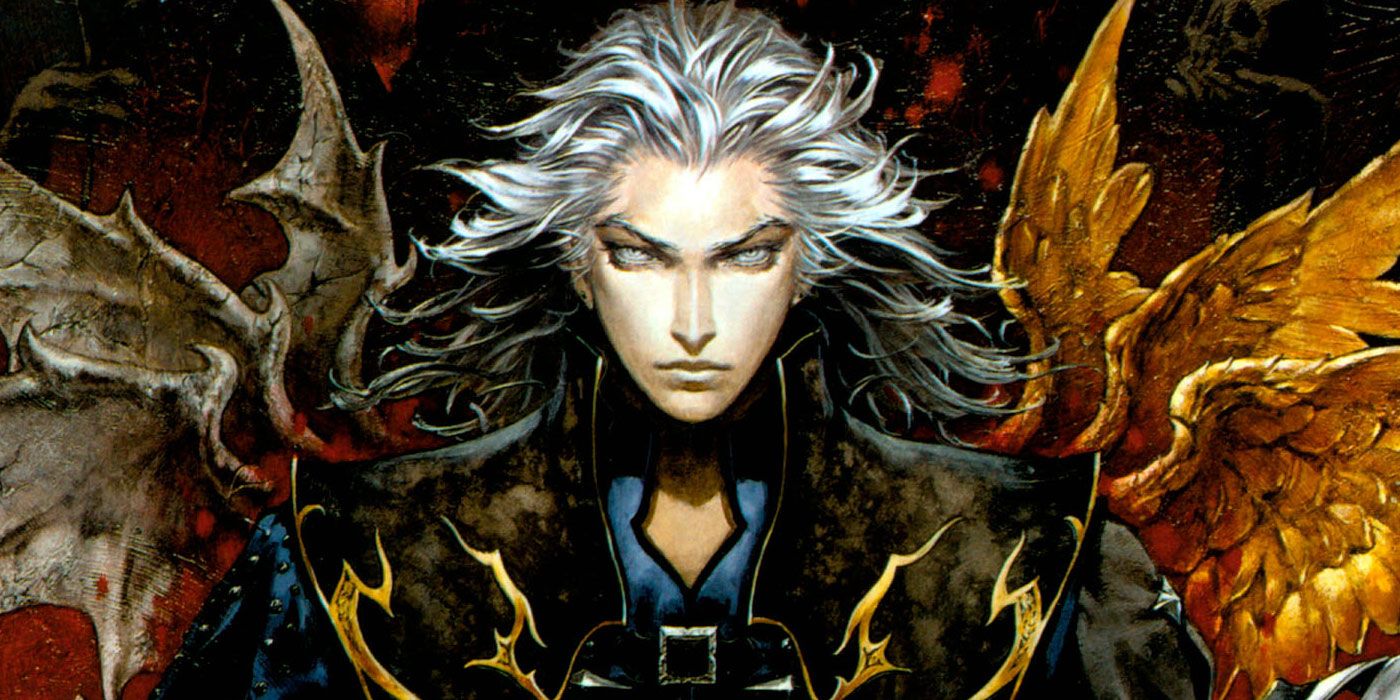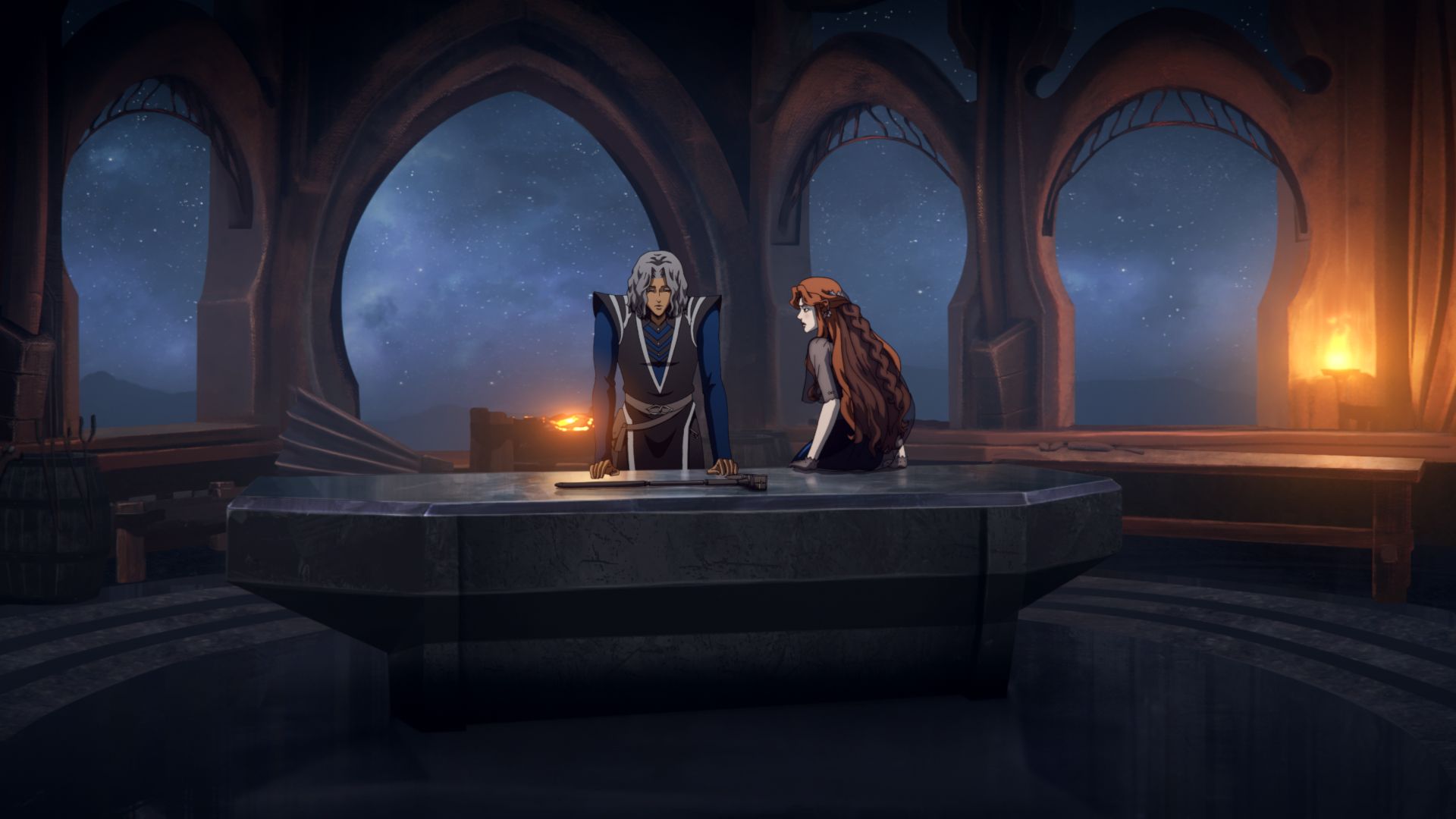
WARNING: The following article contains spoilers for Castlevania Season 4, available now on Netflix.
Netflix's animated adaptation of Castlevania has come to a triumphant end with its fourth season, ending the adventures of Trevor Belmont and his fellow monster-hunting friends as they battle the forces of darkness for the fate of humanity. While the animated series has always drawn the most heavily from 1989's Castlevania III: Dracula's Curse and 2005's Castlevania: Curse of Darkness, the end of the series deviates considerably from the video game source material in regards to where it leaves many of its main characters.
One of the widest divergences involves the Devil Forgemasters Hector and Isaac, two humans working for Dracula to create his monster army that fell into opposing camps after the vampire lord was killed at the end of Season 2. As the protagonist of Curse of Darkness, Hector pursued Isaac into the ruins of Dracula's castle in the 2005 video game for causing the death of his fiancee Rosaly, killing him and preventing the resurrection of Dracula. In the animated series, this friendship doesn't descend into acrimony, with the two reconciling upon their reunion in Season 4 and Hector helping his old friend slay his new vampire master Carmilla.
However, while Hector and Isaac's friendship endures, Hector doesn't quite get the happy ending he does at Curse of Darkness. Over the course of the video game, Hector meets Isaac's estranged sister Julia, who herself is a witch. After killing Isaac and thwarting Death's attempt to resurrect Dracula, Hector and Julia began a new life together as peace was restored to Transylvania. Conversely, the animated series does not introduce a sister for Isaac at all, instead with Hector forming a romantic relationship with a vampire named Lenore. After Hector and Isaac overthrow Carmilla, Lenore sees herself as a virtual prisoner and commits suicide with Hector's tacit approval rather than be confined with the human that double-crossed her.

And then there's the matter of Trevor and his friends. While Curse of Darkness had Hector cross paths with both Trevor and St. Germain and work closely with them throughout the game, with Hector going as far as to save Trevor's life with Julia, this partnership is completely omitted in the animated series. Just as Hector doesn't get his happy ending in the animated series, neither does St. Germain, who dies after realizing he was manipulated by Death as part of his evil plot to resurrect Dracula and his wife Lisa. In the game, Germain survives and ponders humanity's endless cycle fitting Dracula as he watches Hector and Julia depart, later resurfacing in the 2008 fighting game Castlevania Judgement to observe the proceedings.
The Castlevania animated series has taken the opportunity to revise and reimagine the endings of this generation of Belmonts and their supporting cast, staying true to the spirit of the overarching conflict and characters but lending its own twist. And as Trevor and his friends enjoy their happy ending following Death's defeat -- with even Dracula and Lisa getting their own chance at happiness -- Hector and St. Germain aren't so lucky as the Netflix series comes to a close.
Castlevania stars Richard Armitage as Trevor Belmont, Alejandra Reynoso as Sypha Belnades, James Callis as Alucard, Theo James as Hector, Adetokumboh M'Cormack as Isaac, Jaime Murray as Carmilla, Jessica Brown Findlay as Lenore, Bill Nighy as St. Germain, Jason Isaacs as The Judge and Rila Fukushima as Sumi. All four seasons are available to stream now on Netflix.
0 Comments